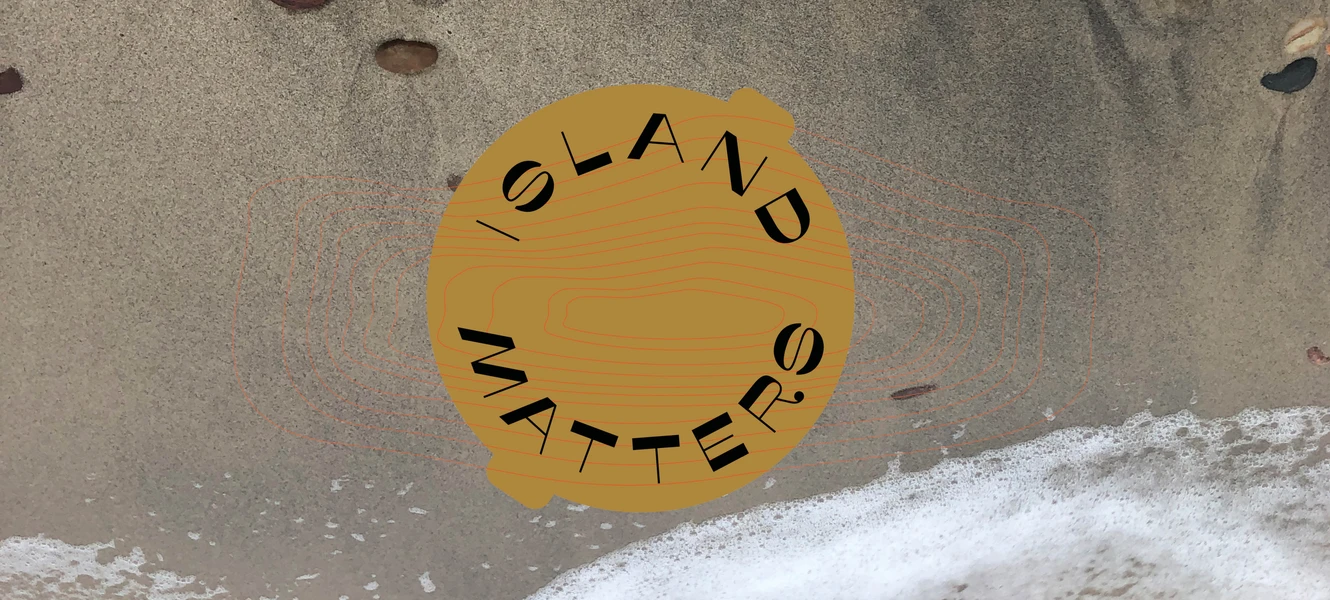
Via the Islands to the Future
The year 2020 may be one of the most transformative years of our lifetimes. The normalities we enjoyed at the beginning of the 21st century are no longer possible. Now, traveling on a whim is frowned upon, hugging in public give us the feeling of having done wrong, and living sustainably is imperative. We have entered the era of rethinking what our normality means. This has made us realise that the societal systems we have built may no longer be in line with values we deem important.
Tapping into the island potential
Islands have certain qualities that make for a more plausible study and exploration of new possibilities. Much like the rest of the world, they need new reconfigurations of life. The interconnectivity of issues within an islands geographical limitation might put extra pressure for these reconfigurations to happen urgently and precisely.
At DesignCamp 2021 Island Matters - Speculative Fabulations of Possible Futures, which takes place 25 January – 5 February 2021, we take our starting point in two Danish islands: Bornholm and Læsø. Around 70 students will use them as case studies for pilot projects and gain research insights from the rest of the world to arrive at potential scenarios that have a global as well as local relevance – not least for the island companies that have accepted the invitation to join. Using speculative design as a tool for imagining worlds that can be radically different, students will produce tangible stories and objects based on potential new systems of the near future.
And with companies onboard such as Gourmet Bornholm (quality food experiences), Bornholms Landbrug & Fødevarer (consultancy company agriculture and foods), BOFA (sustainable waste-handling), Maker’s Island (arts and craft community), Natur Bornholm (experience centre), Læsø Fiskeindustri (fishing, processing and export), Læsø Tang (seaweed company) and Læsø Tangtage the focus will be on food, experiences and materials. Because what if food waste was beneficial? What if Arts and Crafts would shape the future?
New perspectives
Bornholm Regional Municipality as well as Læsø Municipality have helped identify companies that might be interested in having their future challenges scrutinised:
- Kolding School of Design asked us if we wanted to help them look into which local companies and organisations might want to join. The future calls for new solutions, and finding these solutions requires new and alternative methods. This will strengthen our position here on Bornholm. I look forward to seeing what solutions might come up for the businesses that have signed up for the Camp, says Municipal Manager in Bornholm Johannes Nilsson.
Two of the companies that have decided to join the Camp are BOFA and Læsø Tang. Both look forward to getting some new perspectives on the challenges and possibilities ahead:
Brian Kjær Johansen from BOFA says:
- Bornholm has a vision to become waste-free in 2032. This requires a lot of good ideas and innovative minds. Therefore, we are thrilled by the invitation from Kolding School of Design’s DesignCamp2021 Island Matters. We hope that together with the Camp students we can come up with groundbreaking ideas and solutions for turning Bornholm into the world’s first island for circular economy.
Læsø Tang looks forward to spending two exiting weeks with the Design School students for several reasons:
- First of all it is a huge opportunity for us to have all these young people analyse our company and hopefully point out areas where we can improve. But it’s also an opportunity to connect with the opinion formers of the future and present them with knowledge about the qualities of seaweed in terms of health, gastronomy and taste and in relation to sustainability in production and as a storytelling with a clear appeal to interested guests and tourists – meaning the development of green tourism. Finally, it’s important for us to serve a concrete and real case so the students don’t have to work in a fictitious world, say Rie and Leif Ladefoged, owners of Læsø Tang.
Virtual design process
Due to Covid-19 the DesignCamp will be online for the first time ever. Of course this causes a practical challenge in terms of collaboration and research. However, we have a talented team of teachers and experts lined up to facilitate the process. Prior to the camp, for instance, the students will receive a box with information about the islands, tools for the design process and ingredients for a shared food experience. The camp will result in a series of presentations on 5 February.
About the DesignCamp
Since 2009, the annual DesignCamp at Kolding School of Design is internationally recognised for successfully establishing a space for companies, experts and design students to come together and engage in the creation of new concepts. Each year the creative setting at the school frames the DesignCamp. Talented and experienced teachers are in charge of teaching the students, and the school’s departments for research, development and communication work together to create a top-level international DesignCamp.
Go follow the Camp on Instagram @designskolenkolding
“Islands have certain qualities that make for a more plausible study and exploration of new possibilities.”


